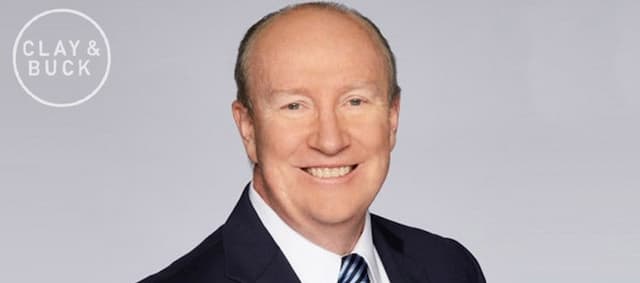Ranked Choice Voting Could Rig Alaska Election for Never Trumpers
BUCK: Senator Lisa Murkowski, allegedly a Republican, although always a super wishy-washy Republican. She’s the only senator who voted for Trump’s impeachment who was up for reelection in this cycle. She voted to impeach him for his role in the January 6th insurrection. It was a riot, everybody. Calm down.
So she faces this election, and she got Kelly Tshibaka, who’s joining us in the next hour, to make her last pitch to the voters. We got great stations up in Alaska, Clay, so it’s another state where we reach all over there. So if we ever have any questions about —
CLAY: You ever been to Alaska?
BUCK: Oh, my gosh. It is one of the most physically beautiful places on earth. It almost looks like something they built on a computer for the Lord of the Rings background or something. It’s amazing.
CLAY: I haven’t ever been. I would love to go.
BUCK: You would love it. I went fly fishing during the salmon run with my dad.
CLAY: This is when you were close to the bears?
BUCK: Yes. Grizzly bears. Which do look cute from far away, but do not touch. Do not get close. So she’s running — she’s running up against — against Tshibaka. Obviously Tshibaka is the Trump-backed candidate. She’s the pro-MAGA candidate. But because of the ranked voting system — why do people do this? But, anyway, the ranked voting system means that it could be Murkowski even though she’s got a lot of backlash from GOP faithful over her vote to impeach Donald Trump. And so it basically right — the Clay the way this works — I’m trying to make sure I say this — so candidates vote for their top four candidates in each race, and then unless somebody gets over 50% of first choice votes, the least supported candidate is eliminated, and they keep on going.
CLAY: So I think four advance for the November election, right? That’s my understanding of how this ranked choice process works.
BUCK: Yes.
CLAY: Because they have no primary system now, right? So you don’t nominate a Democrat, and you don’t nominate a Republican candidate, as exists in most parts of the country. You just rank your top four and then those top four advance, and then you can rank those top four in November, is my understanding, and that’s how you eventually end.
And I think that works not only there but for also Alaska’s congressional seat, which right now Sarah Palin is favored to end up winning, if you look at oddsmaker numbers, but I think that’s also a little bit complicated. And so this, to my knowledge, has not been applied — I don’t think they’ve done it for a statewide Senate race like this before. Some of you in Alaskans can let me know on social media if I’m wrong about that. But it’s a unique system by which they are selecting their senator and their congressman that is newly instituted in Alaska.
BUCK: They could both be on the ballot still in November is the way it works because of the way they’re doing their ranked system primary.
CLAY: Yes. So there’s four, is my understanding, that will be on the ballot for both the congressional seat and the Senate seat. And we’ll talk with Kelly Tshibaka about this, because I think one of the things that’s so fascinating about it is, in theory, I think when you’re ranked choice voting, if you really like one candidate, you shouldn’t rank any other candidates, right? You should just vote one person and then instead of allowing, you know, I guess if you really dislike Murkowski —
BUCK: Nobody wants their second choice political candidate. You want your first choice.
CLAY: I’m trying to work through exactly how you should handle this, but I guess you could rank the one you like the least best of the four and try to get them eliminated. This is gonna be really complicated I think for a lot of people, is what’s your understanding.
BUCK: I don’t think ranked choice is a good idea. We have this now, I believe, in other states as well. And it just complicates matters. But then again, Maine and Nebraska don’t do winner-take-all for the Electoral College. So, Clay, it’s a crazy world we live in, man. All kinds of dogs and cats living together, mass hysteria.





